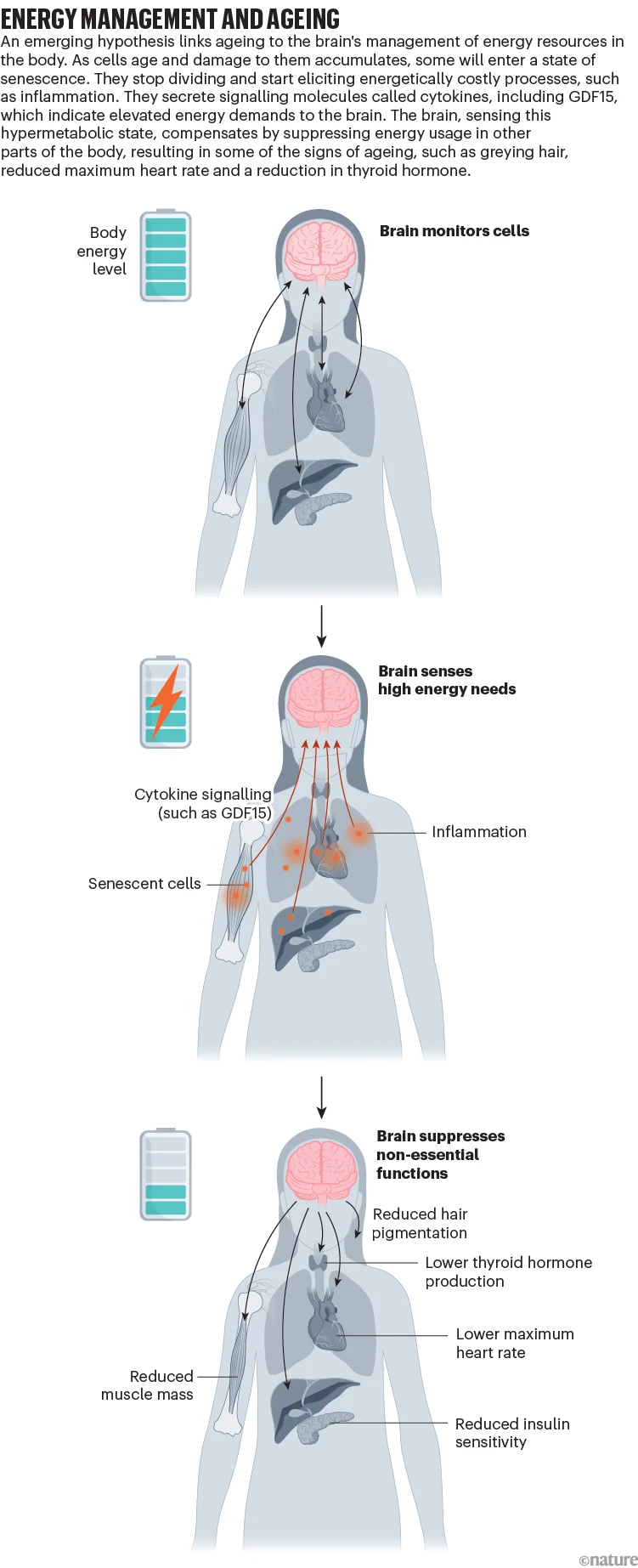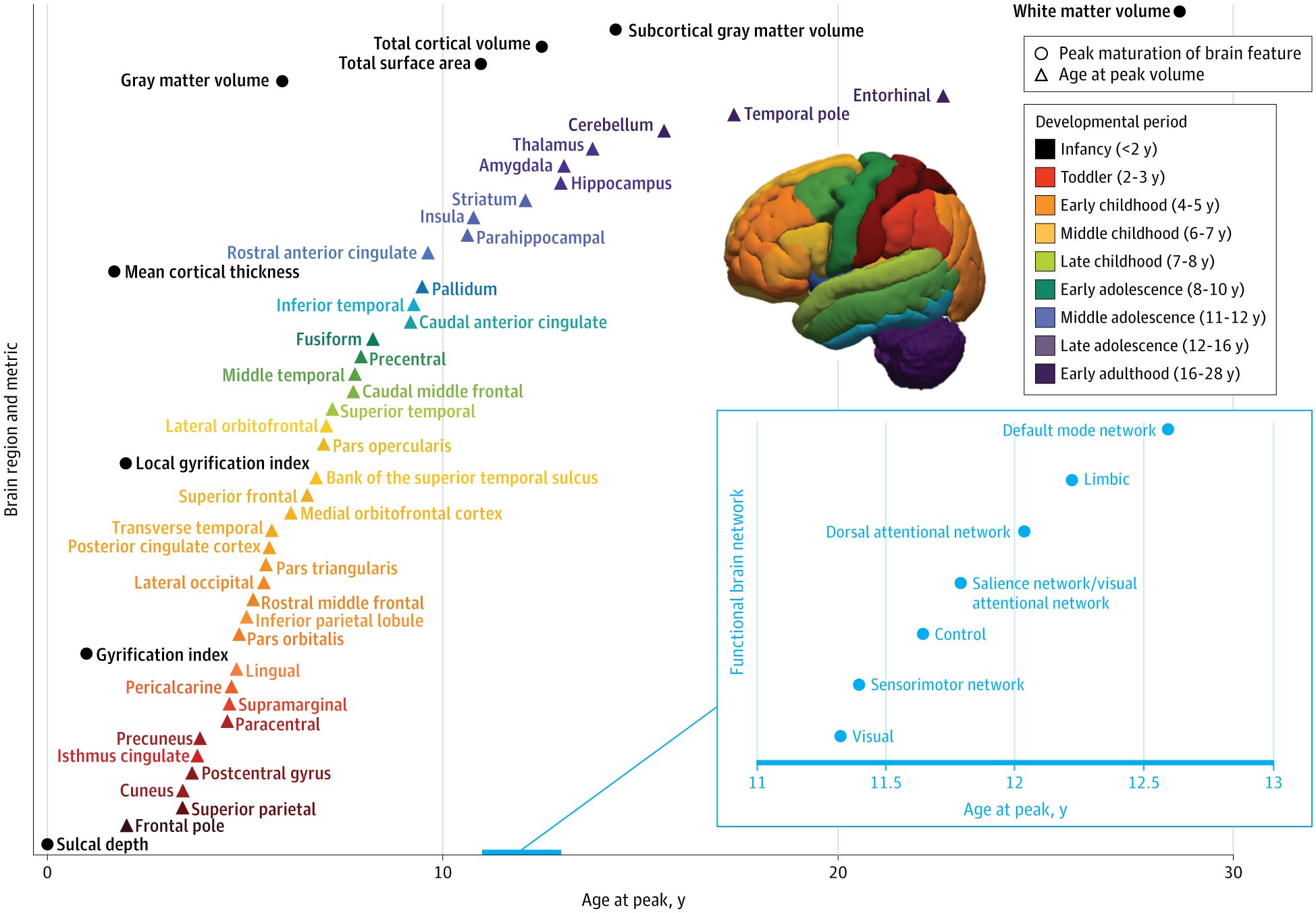Generally I think everyone that ages will get every aging disease suiting their sex, but in different orders and generally people die before getting all of them. That is because the balance of mitochondrial quality and burden of senescence varies.
Epigenetic biomarkers of mortality risk in mice under chronic social stress
A strong association exists between exposure to life stressors and accelerated aging in humans and animal models. However, the molecular mechanisms that underlie the adverse effect of stress on aging remain poorly characterized, and there is a paucity of prognostic predictors of stress-induced disease outcomes and life expectancy. To address this gap, we developed mathematical models to predict remaining lifespan based on healthspan data across two independent cohorts which were part of a large study (350 + mice) on social stress and aging in mice. We then relate remaining lifespan to changes in DNA methylation, due to its strong association with age as well as environmental factors such as stress exposure. Multivariate multiple regression identified blood glucose as a major trait associated with DNA methylation. An independent neural network analysis also identified blood glucose among the traits most associated with mortality risk. Finally, elastic net regression identified several DNA methylation sites, including Ptp4a3, Lrrc3b, Adgrb1, Mron5, and Gm6549, which represent possible targets at the intersection of glucose, stress and survival. Overall, the main finding of our analysis is that epigenetic biomarkers of mortality risk reveal an association with blood glucose levels, informing on individual life trajectories shaped by the impact of chronic social stress.
Open Access Paper:
For example, in one 2024 study of male mice, Bartolomucci’s team demonstrated that social stress during a relatively brief period in early life led to an increase in levels of a key marker of cellular senescence, called p16, in the brain, fat tissue and immune cells7.
See: How your brain controls ageing — and why zombie cells could be key (Nature)
How stress ages you.
“Excessive academic focus during early childhood can hinder the development of creativity, play skills and social abilities — all of which are critical areas for healthy growth,” said Eom So-yong., a professor at Yonsei University’s College of Medicine, during a forum on reducing private education for children held Wednesday by the Seoul Metropolitan Office of Education and the Seoul Metropolitan Council.
“Persistent stress at this age can negatively affect brain development. Excessive secretion of stress hormones can harm cognitive function and emotional stability," the professor explained. "It can later decrease interest in learning during the school years, lower motivation and lead to poor academic performance, reduced self-esteem and emotional problems as well."s
Tiger Moms disagree. You’ll tear away private tutors and severe pressure from their cold dead hands🤣.
Investigating the molecular ‘scars’ of PTSD in the human brain
Trauma leaves traces in the brain. A study of alterations in gene regulation in the brains of people with post-traumatic stress disorder offers insights into its biology.
Trauma is debilitating. There have been a few cases of extreme stress (job loss/uni exams) that still haunt me in my dreams/nightmares. Thank God I never went to Vietnam or some other horrific experience. I can only imagine how that would mess someone up royally.
How can you reduce the risk of that? I’ve heard about playing tetris right after a traumatic event.
The study involved 71 motor vehicle accident victims, of whom half received the intervention (recalled the trauma briefly and then played Tetris) while waiting in the hospital emergency department, and half performed another task, all doing so within six hours of the accident. Results showed that the researchers’ hypothesis was right: those who had played Tetris had fewer intrusive memories of the trauma in total over the week immediately following the accident than the controls. The researchers also found that the intrusive memories diminished more quickly.
It doesn’t help with trauma already experienced, other possible things for that of course (maybe MDMA therapy with psychotherapy).
It’s no secret that stress isn’t good for you. But just how bad is it? Well, in the last few decades, scientists have linked psychological stress to changes in our DNA that look a lot like what happens on the molecular level as we age. Today on the show, host Regina G. Barber talks to freelance science journalist Diana Kwon about the latest research on stress and aging, including a new hypothesis for how your brain handles aging — and what science could do about all of it.
podcast
paper
How your brain controls ageing — and why zombie cells could be key
Research is revealing the cellular mechanisms that link mental well-being and longevity.
But in 2022, Gabriel Sturm, a former graduate student of Picard’s, painstakingly observed the life course of human skin cells cultured in a dish1 and, in findings that have not yet been published in full, found that cells that had stopped dividing had a metabolic rate about double that of younger cells.
For Picard and his colleagues, the energetic mismatch wasn’t a paradox at all: ageing cells accumulate energetically costly forms of damage, such as alterations in DNA, and they initiate pro-inflammatory signalling. How that corresponds with the relatively low energy expenditure for ageing organisms is still unclear, but the researchers hypothesize that this tension might be an important driver of many of the negative effects of growing old, and that the brain might be playing a key part as mediator2. As some cells get older and require more energy, the brain reacts by stripping resources from other biological processes, which ultimately results in outward signs of ageing, such as greying hair or a reduction in muscle mass (see ‘Energy management and ageing’).
Read the full article:
Not all stress is bad. There is good stress (eustress), which is beneficial. One can indulge in good stress to counteract the bad - engage in difficult sports, watch a thriller game, or an exciting movie (The Love Bug - apologies to those who are too young)…
Recognizing Healthy Good & Bad Stress - Harvard Pilgrim Health Care - HaPi Guide.
If depressed, go for a run. That was the prescription in the 70s and early 80s.
Several studies report that jogging works well for moderately depressed neurotics. In one test of 28 depressed patients, a team of psychiatrists and psychologists at the University of Wisconsin Medical School found that for most of them, 30 to 45 minutes of jogging three times a week was at least as effective as talk therapy. Psychiatrist Robert S. Brown of the University of Virginia at Charlottesville, who says it dawned on him one day that “nobody jogging down at the track ever appeared depressed,” finds that the exercise works better than pills in controlling depression. About 70% of all his patients, he says, are depressives, and all but 15% to 20% show “quick benefit” after only a week of running. Says U.C.L.A. Psychiatrist Ronald M. Lawrence: “Mild depression is more common than the common cold, but it can be markedly helped by slow endurance exercise.”
Yes, its also called hormetic stress (or Hormesis)
Neurodevelopmental Timing Links Stress and Psychopathology
Precision psychiatry leverages the unique characteristics of each individual to improve diagnosis and treatment of psychiatric disorders. Although interindividual variation in neurobiological features has been associated with psychopathology, we still lack a complete picture of intraindividual variation in the neurodevelopmental trajectories of these features from infancy to adulthood. Tracking normative brain development across large populations allows for mapping developmental milestones and epochs of progressive growth, revealing periods of heightened plasticity. Although neurodevelopment is also highly genetically regulated, genetic influences unfold over time and interact with the environment, including stress-related epigenetic changes, particularly during periods of heightened plasticity.1 By contextualizing an individual’s history of positive and negative experiences across dynamic windows of neurodevelopmental plasticity, we may better understand how a confluence of genetic and environmental factors sets an individual’s brain development on a personalized trajectory relative to the expected norm.1 Characterizing stress through a neurodevelopmental lens may be a powerful tool for (1) understanding how risk may accumulate within the brains of individuals (looking backward) and (2) predicting the lasting impacts of experience on future psychopathology (looking forward).
Paywalled paper:
https://jamanetwork.com/journals/jamapediatrics/article-abstract/2837717
It’s not just in your head: Stress may lead to altered blood flow in the brain
While the exact causes of neurodegenerative brain diseases like Alzheimer’s and dementia are still largely unknown, researchers have been able to identify a key characteristic in affected brains: reduced blood flow.
Building upon this foundational understanding, a team at Penn State recently found that a rare neuron that is extremely vulnerable to anxiety-induced stress appears to be responsible for regulating blood flow and coordinating neural activity in mice."
https://science.psu.edu/news/its-not-just-in-your-head-stress-may-lead-altered-blood-flow-in-brain

